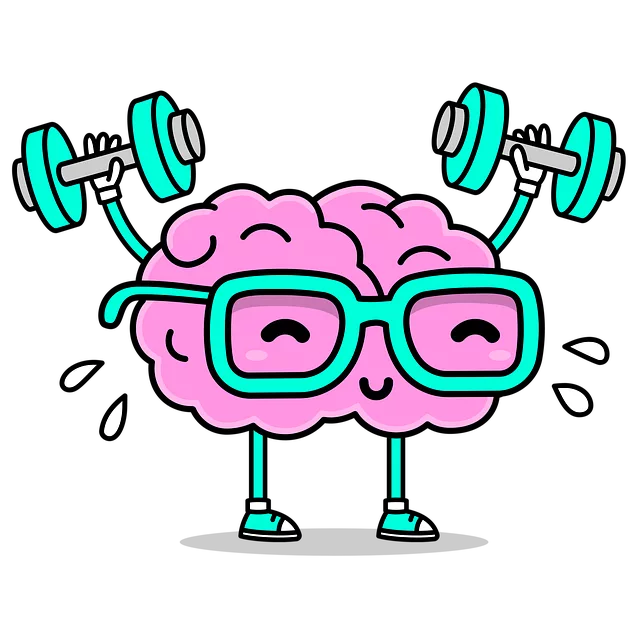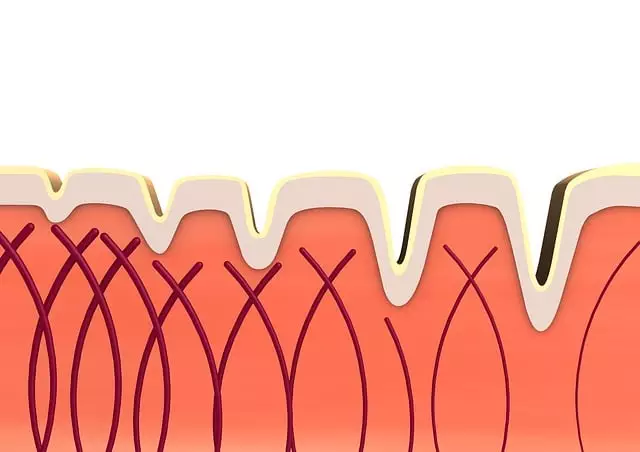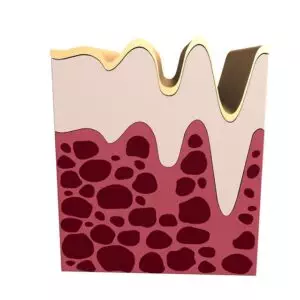Collagen stimulation is a key strategy for maintaining youthful skin as it naturally decreases with age. By encouraging the body to produce more collagen, individuals can restore skin structure, protect existing collagen fibers, and reduce signs of aging like wrinkles. Topical products containing peptides, retinol, vitamin C, and other active ingredients signal skin cells to synthesize new collagen. Lifestyle factors such as hydration, exercise, diet (rich in amino acids, vitamins C & E), and sun protection also significantly influence collagen synthesis. Non-invasive treatments like injectables and topical solutions further enhance collagen stimulation for a more radiant, youthful complexion.
Collagen, the skin’s fundamental structural protein, plays a pivotal role in maintaining youthful appearance. As we age, natural processes lead to collagen depletion, resulting in wrinkles and loss of elasticity. This article explores collagen stimulation as a potent strategy for wrinkle reduction. We delve into the science behind it, dispel myths about topical stimulants, and uncover lifestyle and dietary interventions that enhance collagen production. From injectables to non-invasive solutions, discover how to boost collagen naturally and effectively.
Understanding Collagen: The Skin's Structural Protein

Collagen is a fundamental protein that plays a pivotal role in maintaining the youthful appearance and overall health of our skin. Often referred to as the “structural backbone” of the dermis, collagen provides strength, elasticity, and support to the skin, ensuring it remains firm, smooth, and supple. It’s responsible for the skin’s ability to bounce back after stretching or movement, a quality we associate with youthful resilience. With age, natural collagen production slows down, leading to reduced skin elasticity and the appearance of fine lines and wrinkles.
Collagen stimulation is a key strategy in skincare to combat these signs of aging. It involves encouraging the body to produce more collagen or enhancing existing collagen fibers to restore the skin’s structural integrity. Various topical products, including serums and creams, are designed with ingredients that stimulate collagen synthesis, such as retinol, peptides, and vitamin C. These ingredients not only support collagen production but also help protect existing collagen from breakdown, ultimately contributing to a more radiant, youthful complexion.
Aging and Collagen Depletion: A Natural Process

As we age, our bodies undergo natural changes, and one significant process is the gradual depletion of collagen. Collagen is a protein that plays a crucial role in maintaining skin elasticity and a youthful appearance. It’s like the soul of our skin, providing structure and support. With time, however, collagen production slows down, leading to fine lines, wrinkles, and reduced skin firmness. This is not just an aesthetic concern but also a sign of our body’s natural aging process.
Collagen stimulation is a topic that has gained significant interest in the skincare industry. It involves various strategies and treatments aimed at encouraging the body to produce more collagen. By understanding this process, individuals can take proactive measures to combat the signs of aging. Through targeted skincare routines and certain lifestyle adjustments, one can promote collagen synthesis, potentially slowing down the visible effects of aging on the skin.
Unraveling the Science Behind Collagen Boosting

Collagen is a key protein that provides structural support to our skin, making it essential for maintaining a youthful appearance. As we age, our bodies produce less collagen, leading to wrinkles and other signs of aging. Unraveling the science behind collagen boosting involves understanding how certain techniques and products can stimulate the body’s natural production of this vital protein.
One of the primary methods for collagen stimulation is through topical applications of creams and serums containing ingredients like peptides, vitamin C, and retinol. These components signal skin cells to activate collagen synthesis, promoting a stronger, more elastic complexion. Additionally, certain lifestyle choices, such as adequate hydration, regular exercise, and a balanced diet rich in amino acids, can also contribute to healthier collagen levels. By combining these approaches, individuals can effectively combat wrinkles and embrace a more radiant, youthful look.
Topical Collagen Stimulants: What Works and What Doesn't

Topical collagen stimulants have gained popularity in the skincare industry as a promising solution for wrinkle reduction. These products claim to boost collagen production, enhancing skin elasticity and reducing visible signs of aging. However, not all topical stimulants are created equal. Understanding what works and what doesn’t is essential for effective collagen stimulation.
Some key ingredients known to effectively stimulate collagen include peptides, retinoids, and certain antioxidants. Peptides, such as palmitoyl tripeptide-38, have been shown to signal fibroblasts, the cells responsible for collagen synthesis. Retinoids, a derivative of vitamin A, also play a crucial role in encouraging new collagen formation. Antioxidants like vitamin C and E protect the skin from damage caused by free radicals, which can inhibit collagen production, making them valuable additions to anti-aging skincare routines. On the other hand, products lacking these active ingredients or using unproven substances may not deliver significant results. It’s important to choose formulations backed by scientific research for effective collagen boosting.
Lifestyle Factors Influencing Collagen Production

Collagen, a key structural protein in our skin, plays a crucial role in maintaining youthful-looking skin by providing elasticity and firmness. However, its production naturally declines with age, leading to wrinkles and fine lines. Understanding lifestyle factors that influence collagen stimulation is essential for promoting healthy skin aging.
Factors such as diet, sun exposure, hydration, and overall wellness significantly impact collagen synthesis. A balanced diet rich in antioxidants, vitamins C and E, and proline-rich amino acids supports collagen production. Adequate sun protection prevents UV damage that can inhibit collagen formation. Staying hydrated maintains skin moisture, facilitating collagen synthesis. Regular exercise promotes blood flow, delivering essential nutrients to skin cells for optimal collagen levels. Prioritizing these lifestyle habits not only enhances collagen stimulation but also contributes to overall skin health and reduced wrinkle appearance.
Dietary Interventions for Enhanced Collagen Synthesis

Collagen is a key protein for maintaining skin elasticity and a youthful appearance, so stimulating its production is crucial in the fight against wrinkles. Dietary interventions play a significant role in enhancing collagen synthesis. Foods rich in amino acids, particularly lysine and proline, are essential building blocks for collagen production. Incorporating more of these amino acids into your diet can support the body’s natural collagen creation process.
Nutrients like vitamin C and zinc also boost collagen stimulation. Vitamin C acts as a cofactor for enzymes involved in collagen synthesis, while zinc is vital for the structural integrity of collagen molecules. A balanced diet that includes citrus fruits, bell peppers, dark leafy greens, seafood, and nuts can provide these essential nutrients, thereby promoting healthier skin and reducing the appearance of wrinkles.
Non-Invasive Treatments: Injectables vs. Topical Solutions

Non-invasive treatments have gained significant popularity in the skincare industry, offering effective solutions for wrinkle reduction without the need for invasive procedures. The two primary approaches in this category are injectables and topical solutions, each with its unique benefits for collagen stimulation.
Injectable treatments, such as Botox and fillers, work by temporarily paralyzing facial muscles or adding volume to specific areas, thus reducing the appearance of wrinkles. These procedures are quick, often providing immediate results, and are administered by trained professionals. On the other hand, topical solutions, including serums and creams, offer a more gradual approach to collagen stimulation. They contain active ingredients that encourage the production of collagen and elastin, improving skin elasticity and texture over time. Topical solutions are easily accessible and can be used as part of a daily skincare routine, making them a popular choice for those seeking long-term, natural-looking results.
